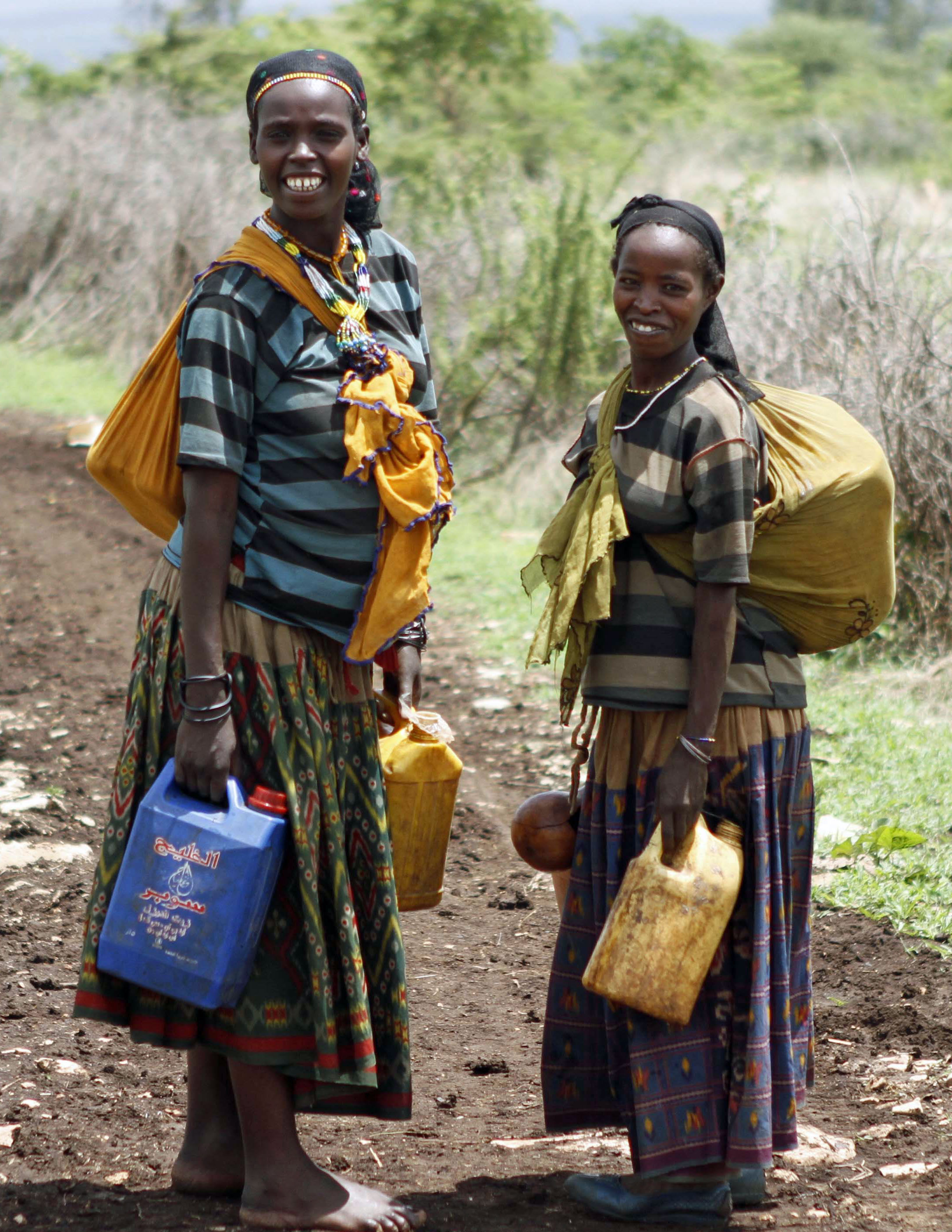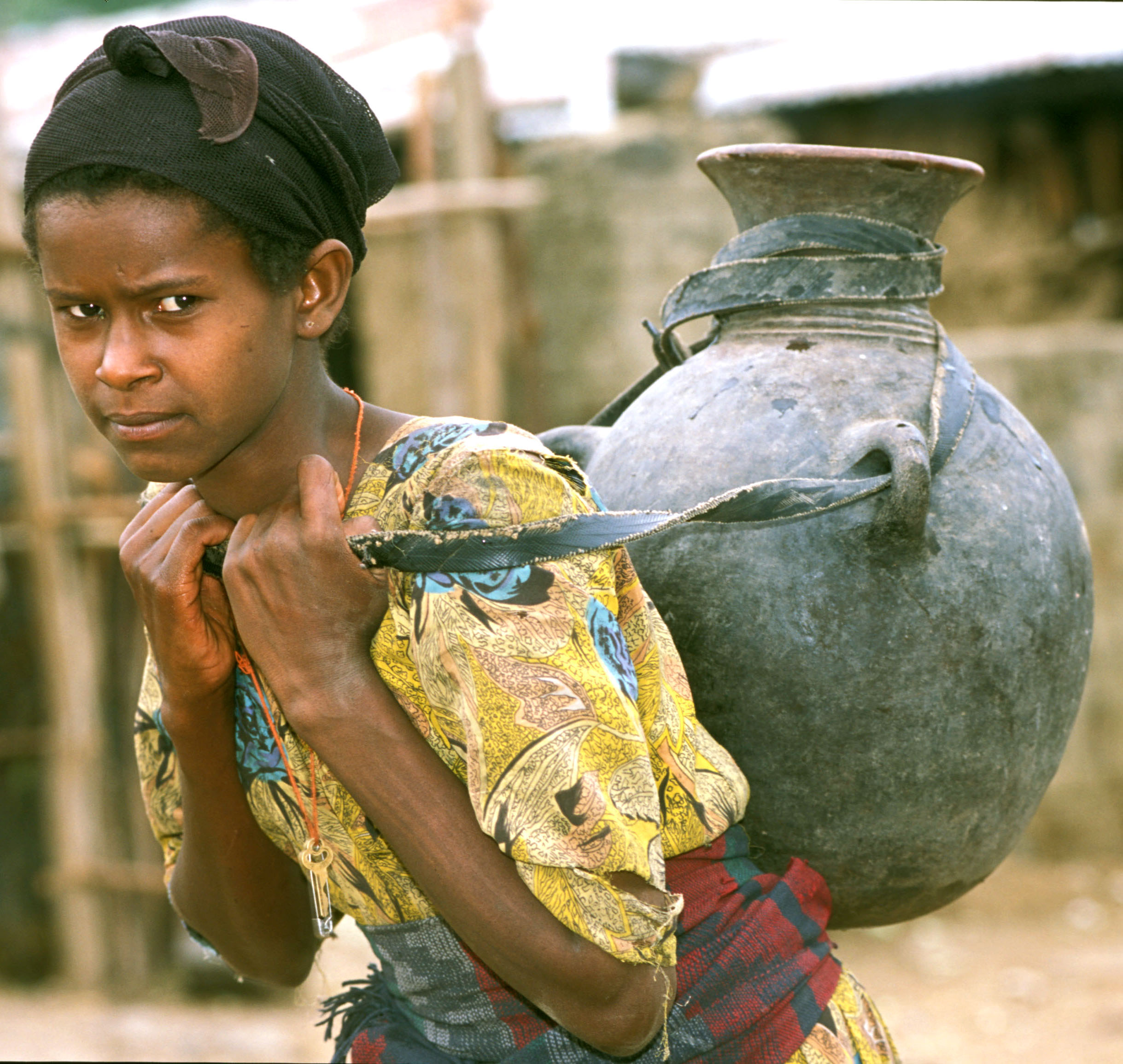After spending four years in Ethiopia, my daughters and I returned to the United States for an extended home leave. We are selfishly enjoying the privileges and luxuries of our US American life, but yet the impact of Ethiopia doesn’t vanish that quickly.
The most recent sane-shocking moment has to do with water. The water system in our town is being cleaned, which means that for several days this week we’ve had mineral dense and murky brown water. No one in my home even reacted to the news- we don’t flinch at the color variation and, since we have the resources to get bottled water for drinking, this was not a day stopper.
But then the talk. In nearly every conversation this week, I have heard about the water situation. Parents lament that it is occurring in conjunction with the start of the school year, coaches worry about athlete performance, and friends decline coffee downtown because they don’t know if the coffee was made from bottled or tap water. I agree that it’s inconvenient, but I can’t shake communities with a true water crisis- such as those in my native Pennsylvania that have been impacted by fracking- out of my mind.

And of course I think of my most recent humanitarian post in Ethiopia.
In rural Ethiopia, most people collect water from unprotected ponds that they share with animals. Others have access to wells, but often women and girls must walk for miles to reach the nearest well, then reversing their journey with a jug of up to 40 pounds on their backs. Even then, often the well water is contaminated by rainwater that washes in from the surrounding earth.
In my work, I’ve seen how water impacts the lives of girls. In Amhara, Ethiopia I conducted a survey to determine factors that keep girls out of school. All out of school girls said that they cannot go to school because they have too much work to do at home. When I asked what kind of work, all girls mentioned water collecting. In a town in the Southern Nations, Nationalities and People’s Region of Ethiopia, I talked to a group of adolescent girls about school. They noted they miss approximately one week of school a month because of menstruation. When I asked why, they said they do not have enough water in their homes to wash the rags they use as pads. Further, water is so scarce that they tell me it is reserved for cooking- meaning that they can’t wash their hands, bathe and drink water regularly. This further impacts school attendance because they often become sick from lack of hygiene and sanitation, which leads to school absences.
When a girl is out of school, she is at greater risk for early marriage. The International Center for Research on Women noted that school protects girls from marriage because it provides a safe space and encourages society to see girls as children- and therefore not marriageable (2011, p.14). School provides girls with an education, which ideally leads to the opportunity for girls to select a safe and sustainable livelihood. The interactions with peers and teachers help girls to develop life skills, such as critical thinking and negotiation skills, which they need to navigate the risks of their environment. School is the easiest pathway out of poverty, and yet issues like lack of portable water stand between a girl and the classroom.
Water isn’t just an issue for girls, but all children. The World Health Organization (2013) notes that diarrheal disease is the second leading cause of death for children under five globally, with approximately 760,000 deaths per year. A significant number of these deaths could be avoided by safe drinking water. Lack of portable may contribute specifically to the death of girls: Pregnancy and childbirth are the number one cause of death of

adolescent girls in the developing world- and the majority of these pregnancies occur within the context of marriage (UNFPA, 2012). Many of the girls I’ve worked with believed that they would be able to attend school if they didn’t have to fetch water- and if they were in school they could delay marriage, which could save their life.
So I am wading through another week in which I’m physically in the US, but mentally still in the Horn of Africa. I admit that I do look forward to having clear water run out of my tap again. Still, for me the bigger issue is how to move forward toward a world where a human right isn’t a luxury reserved for those of us living in the West.
International Center for Research on Women. (2011). Solutions to end child marriage: What the evidence shows. Washington, DC: Author. http://www.icrw.org/publications/solutions-end-child-marriage
UNFPA. (2012). Motherhood in childhood. New York, NY: Author. http://www.unfpa.org/webdav/site/global/shared/swp2013/EN-SWOP2013-final.pdf
WHO. (2013). Fact sheet 330: Diarrhoeal disease. http://www.who.int/mediacentre/factsheets/fs330/en/